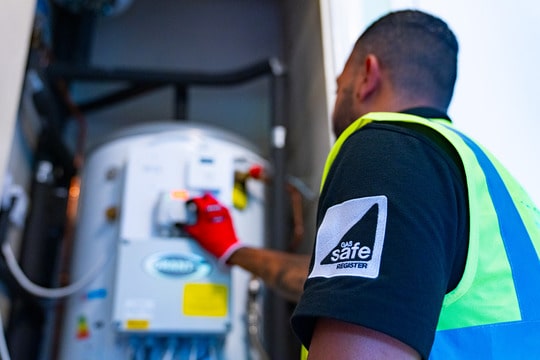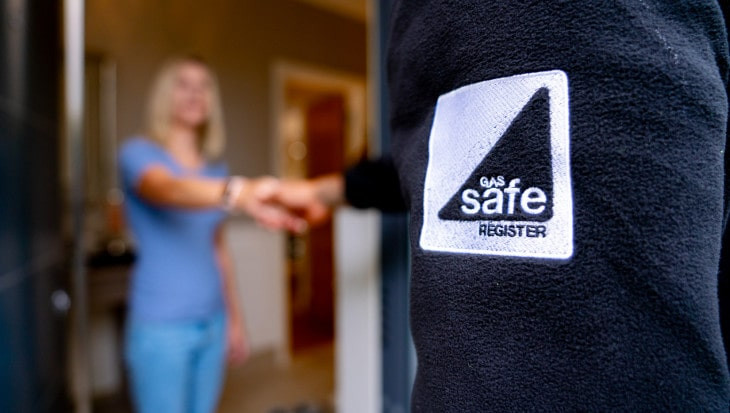A landlord can be fined for not having a gas safety certificate due to legal requirements. This certificate confirms that a registered gas safety engineer has inspected the property and ensured gas installations are safe.
The “Gas Safety (Installation and Use) Regulations 1998” obligate landlords to maintain gas appliances, pipelines, and flues.
If you don’t provide this certificate, you could face fines of up to £6,000 per gas appliance. Therefore, landlords must obtain and renew gas safety certificates to protect occupants and comply with the law
Why Was a Landlord Fined for No Gas Safety Certificate?

In the UK, the specific regulations regarding gas safety certificates fall under the Gas Safety (Installation and Use) Regulations 1998.
These rules explain what landlords must do to keep their tenants safe when it comes to gas appliances.
Lack of compliance with legal regulations
In the UK, landlords have to schedule a Gas Safe registered engineer to check all gas appliances and flues in their rental property at least once a year.
This inspection makes sure that the appliances are working safely and well, meeting the standards set in the regulations.
After the inspection, the landlord must provide a copy of the valid Gas Safety Certificate (CP12) to their tenants within 28 days of the inspection date, or before they move in. This document serves as proof that the appliances have been inspected and deemed safe for use.
Landlords must also retain the gas safety certificate and records of any maintenance done on the appliances for at least two years after the inspection.
Not meeting these requirements violates the Gas Safety (Installation and Use) Regulations 1998 and may lead to fines. The fine amount depends on the seriousness of the breach and the landlord’s past compliance history.
Potential risks to tenants’ safety in the UK
The primary reason for these regulations is to protect tenants from the potential dangers of faulty gas appliances. Here’s how a lack of gas safety certificate translates to a risk to tenant safety in the UK
Increased risk of gas leaks
Without a qualified engineer inspecting the appliances and flues, potential leaks or malfunctions may go undetected. Leaking gas can lead to
Carbon monoxide poisoning: CO is a colorless, odorless gas that can be deadly. Early symptoms of CO poisoning can be easily confused with the flu, making it even more dangerous.
In the UK, there is a legal duty under the Carbon Monoxide Alarm Regulations 2015 for landlords to install a CO alarm in all rented properties where there are solid fuel burning appliances (e.g., gas fires or boilers).
However, even with a CO alarm, a gas safety certificate is crucial to identify potential leaks before CO reaches dangerous levels.
Fire and explosions
A build-up of unburned gas can create a fire hazard. If there’s a spark or ignition source, a gas explosion can occur, causing serious injuries and property damage.
By neglecting to obtain a gas safety certificate, the landlord is essentially putting their tenants at risk of these dangers. This disregard for their legal obligations and tenant safety is why they are subject to fines.
Consequences of Not Having a Gas Safety Certificate

Let’s explore the repercussions of not possessing a gas safety certificate, which includes legal ramifications, financial liabilities, and potential hazards to tenants’ health and safety.
Legal Penalties and Fines
Under the Gas Safety Regulations, landlords (and their agents, if applicable) can face prosecution and a fine of up to £6,000 if they fail to produce a valid gas safety certificate. This financial penalty serves as a strong incentive for compliance.
In severe cases, landlords could even be imprisoned for up to six months if they consistently neglect gas safety requirements. The law takes this matter seriously to protect tenants.
Risks to Tenants’ Health and Well-Being
Without proper inspections and certificates, gas appliances may develop leaks or malfunction. This can lead to carbon monoxide poisoning, which is life-threatening. A gas safety certificate ensures that appliances are safe and do not pose health risks to occupants.
Gas appliances that haven’t been inspected can become faulty over time. Malfunctioning boilers, cookers, or heaters may emit harmful gases or cause fires. Regular inspections prevent such risks.
Knowing that their home has a valid gas safety certificate provides tenants with peace of mind. They can trust that their landlord prioritizes their safety and well-being.
FAQ
Is it illegal for a landlord to control the heating UK?
In the UK, landlords must make sure tenants have enough heating, but they can control it. They need to keep the property warm enough, usually around 18 degrees Celsius.
How long can a landlord leave you without an oven UK?
Landlords should fix broken ovens quickly so tenants can cook. There’s no set time, but landlords should act fast to keep the property in good condition.
Who is responsible for painting, landlord or tenant UK?
Usually, landlords are in charge of painting. But tenants should also take care of the property and may need to repaint if they cause damage.
Can a landlord come in without notice UK?
Landlords usually need to tell tenants before entering, except for emergencies. They should give at least 24 hours’ notice in writing for things like repairs or inspections.
How long can a landlord leave you without a working toilet UK?
Landlords must keep toilets working all the time. If one breaks, they should fix it quickly to avoid problems for tenants.
Final thoughts
Landlords must make sure their tenants have gas safety certificates to keep them safe. If they don’t follow this rule, they can get fined and put their tenants at risk. Getting and keeping gas safety certificates helps landlords follow the law and keep their tenants safe in their rental homes.



